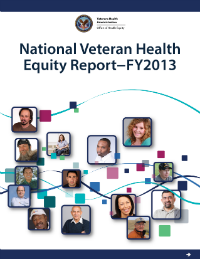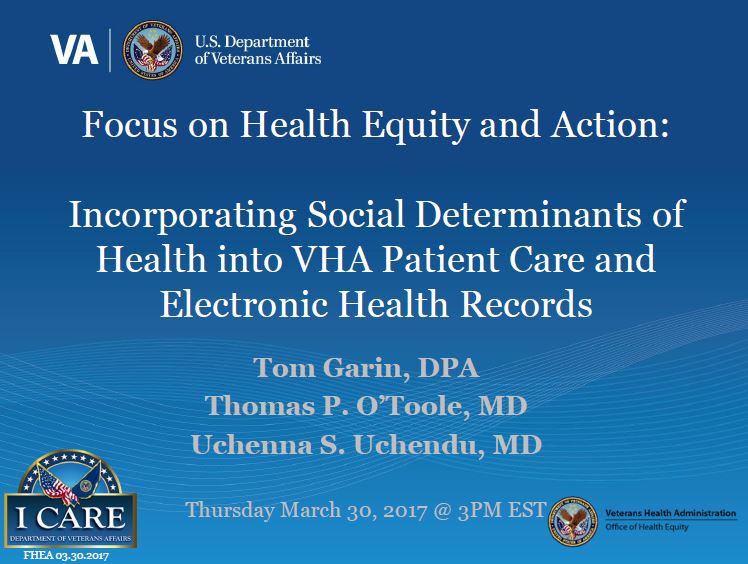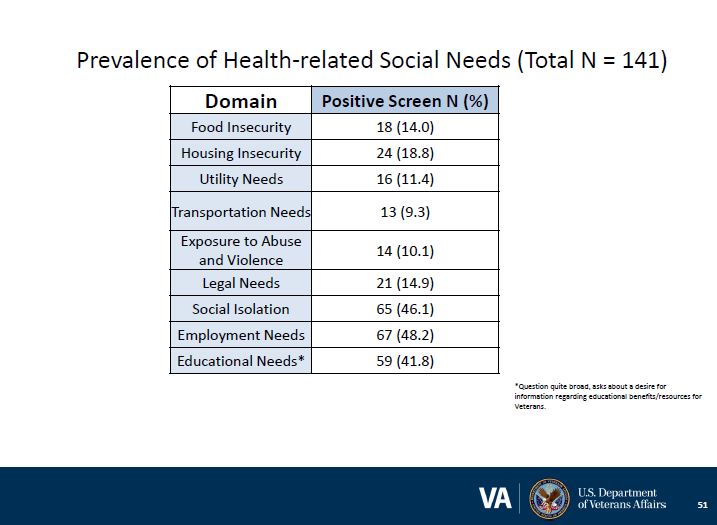Visualizations and Dashboards
Veterans Geography of Opportunity Tool
How healthy are communities where Veterans live?
Use this tool to explore different factors that influence health in communities where Veterans live, work, and play. The Veterans Geography of Opportunity Tool uses Veteran population model projections at the county level from the US Department of Veterans Affairs National Center for Analysis and Statistics and data from County Health Rankings & Roadmap, a collaboration between the Robert Wood Johnson Foundation and the University of Wisconsin Population Health Institute. The goals of that collaboration, which are shared by the VHA Office of Health Equity, are to:
- Build awareness of factors that influence health
- Provide reliable data to identify opportunities to impove health
- Engage and activite communities and stakeholders in creating change
- Connect and empower communities to improve health
National Veteran Health Equity Report - FY13
 The National Veteran Health Equity Report details patterns and provides comparative rates of health conditions for vulnerable Veteran groups. Specifically, this report is designed to provide basic comparative information on the sociodemographics, utilization patterns and rates of diagnosed health conditions among the groups over which the VHA Office of Health Equity (OHE) has responsibility with respect to monitoring, evaluating and acting on identified disparities in access, use, care, quality and outcomes. The report allows the VA, Veterans, and stakeholders to monitor the care vulnerable Veterans receive and set goals for improving their care.
The National Veteran Health Equity Report details patterns and provides comparative rates of health conditions for vulnerable Veteran groups. Specifically, this report is designed to provide basic comparative information on the sociodemographics, utilization patterns and rates of diagnosed health conditions among the groups over which the VHA Office of Health Equity (OHE) has responsibility with respect to monitoring, evaluating and acting on identified disparities in access, use, care, quality and outcomes. The report allows the VA, Veterans, and stakeholders to monitor the care vulnerable Veterans receive and set goals for improving their care.








































